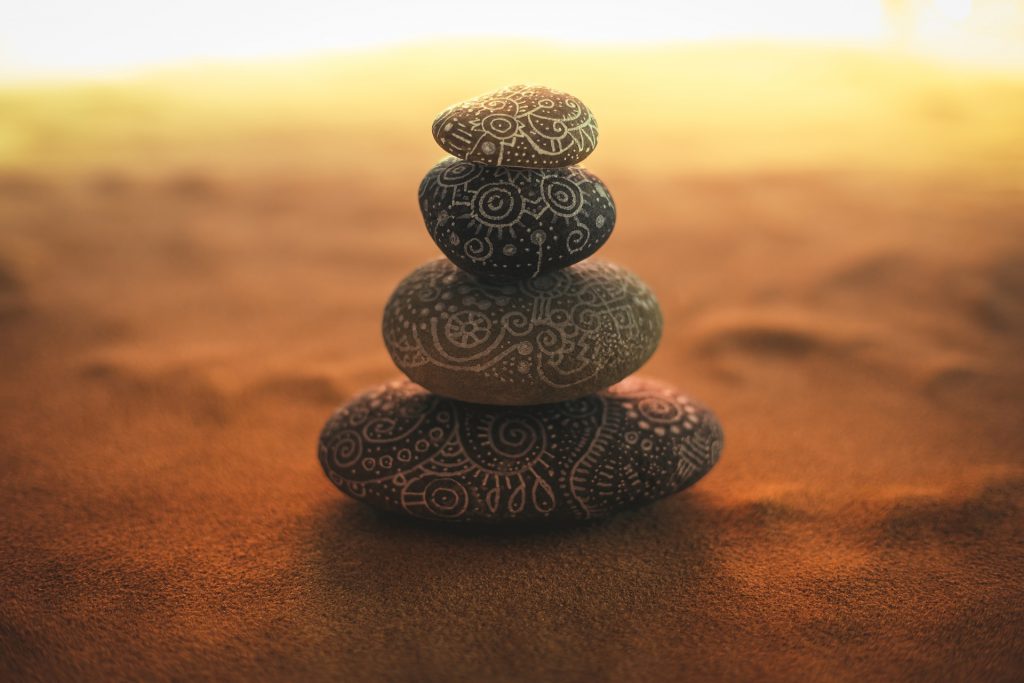
What Is Mindfulness Good For?
Mindfulness teaches us to live with awareness and pay attention to our experiences so that we can become free from the unwanted thoughts and clutter in our minds. It will enable you to break out of repetitive patterns and blocks, freeing you up to focus on exactly what matters.
When you practice mindfulness you slow down your rate of thinking and take control of the direction of your thoughts. Modern society doesn’t allow much time for reflection, so it is important to cultivate techniques that enable you to disconnect from the stresses and pressures of daily life.
When you practice mindfulness and meditate regularly, the part of the brain that regulates attention thickens and becomes stronger. The networks fuse together more easily, just as your biceps would when lifting heavy weights at the gym. Neurons that fire together, wire together, so the more you focus, the more effortless it becomes.
Over time, you will learn how to respond to triggers in any environment as you rationalise and feed the experience with awareness. Rather than just reacting to situations in anger or frustration, you will process your emotions and respond with clarity.
When you adopt mindfulness into your daily life, you will find that everyday existence becomes less stressful. Living presently will give some relief from traumatic past experiences and worries in the future, giving you space to think freely.
Become Mindful & Live Presently
One of the trickiest aspects of becoming mindful is learning to live in the present moment. They call it the present because it is a gift. You can only ever exist at this moment, so you shouldn’t allow the past or the future to affect your current reality for anything other than positive reinforcement.
Regret can only exist in the past context. Reliving the past in such a way can lead you to overthink what could you have done differently. Worry is an emotion reserved solely for the future. You can find yourself stressing about the uncertainty of what could happen.
You should understand that you won’t change anything, either way, so upsetting yourself over it won’t help. Working on yourself in the present will bring you closer to where you want to be.
If you struggle with motivation, for example, try to realise that when you decide to put off a task in the present moment, you will only set yourself up for disappointment later on when you look back in regret. Try to see time as a collection of nows, that can only be affected at this present moment.
Becoming mindful in such a way will help you gravitate towards becoming the best version of yourself and will encourage you to disassociate with negative thoughts about the past and the future.

Mindfulness Exercise
Most people won’t use mindfulness in their day-to-day lives and will miss out on all the potential it can bring for positive change. Everything that comes your way is an opportunity for you to respond virtuously. Choosing to be conscious about your actions and thoughts will give you the opportunity to think rationally about making the best choice.
One really simple technique you can use to bring out your best is a mindfulness exercise.
Write a description about someone you admire or look up to, noting what it is about them that makes them worthy of respect. What character traits of theirs would you like to adopt? They should possess all of the qualities that will enable you to become your best self.
Now, write a description about yourself at your best and detail all of your best qualities, not what you want to have. How is that person different from you right now? How would you treat people you know differently if you were that person?
Every evening, aim to keep a journal about your day, writing out what happened, and then, what would have happened if your best self had experienced that same day. Notice the difference between each one. Continue this every evening until you only have one version of your day to journal. Reaching this point will mean that you are genuinely at your best all the time, consciously choosing your best responses, acting out as your best self.
Negative Experiences Are Good For You
Every experience in your life, whether it is positive or negative, should be used to mold you into a better person. The Stoics referred to this as Amor Fati, a practice that gives anyone the ability to face the toughest times with resilience and acceptance.
You must always remember that it is not external forces that change how you feel, but your reaction to them that generates those feelings.
The world’s most successful entrepreneurs will all have a long list of failures and negative experiences that have put a struggle on their road to achievement.
Dealing with those experiences correctly will make you a stronger person, which is where mindfulness can help. If you respond to negativity with the right state of being, you can use it to make you stronger when dealing with similar situations in the future.
When you resent, regret, or resist situations, you are only battling yourself, which will only bring more conflict. You will find that everything becomes easier when you begin to accept and embrace experiences and live in alignment with your life.
Try incorporating this into your day and see it as your new method of thought. More importantly, however, do not beat yourself up about things that you have done wrong, because negative experiences can only build you stronger.

Work More Productively With Mindfulness
Your productivity rate can be transformed significantly when you practice mindfulness. At work, many of us can be left feeling scattered, overwhelmed, and stressed when under pressure. Creating space in your mind will allow you to stay focussed and flexible, increasing your productivity, and enabling you to experience situations at hand, rather than judging them.
Mindfulness can truly help to reduce your stress levels, one of the dominant causes of disengagement and absences. Work-related stress can filter into your home life, affecting your relationships and health. Introducing five-minute breaks into your work schedule and practicing mindfulness will give you the focus you need to complete the tasks at hand.
Having psychological flexibility will encourage bonding between teams. If there are problems between them, it is most likely because they are stressed and too focused on themselves, and as a result, they feel like they cannot deal with other people.
When your organisation embraces mindful techniques, your colleagues will start to show more compassion and cooperation. This promotes a safer work environment, in terms of health and psychological wellbeing.